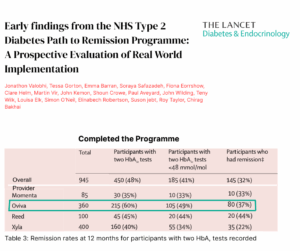NHS long-term plan, in the short-term: Where tech must help now.

Strategic realignment over the next 10 years is important. But what are the practical, inarguable early wins the government must try to achieve for an NHS now? Dr Mark Ratnarajah, UK Managing Director of C2-Ai and practising NHS paediatrician, offers some answers.
As the unveiling of the long-awaited NHS 10-Year Health Plan rapidly approaches, the need for certainty and direction has never been more pressing.
Staff at the centre are already being reorganised, systems are being re-defined, and productivity and workforce pressures facing the frontline mean that new ways of solving pervasive problems are all but guaranteed to be heralded as the plan hits the shelves.
The Chancellor’s June spending review has earmarked £10bn for digital – but looking beyond the NHS App and a new single patient record, how might this money be used to respond to pressures with new care models, and what must be done much more immediately rather than over the decade?
Here’s seven priorities the new long-term plan must address in the short-term.
Managing electives, preventing demand escalation
A key election pledge, the elective backlog will undoubtedly be prominent in the plan. Though important progress has been observed, NHS Confederation’s recent annual conference reminded delegates that millions of people are still on waiting lists. Addressing the real problem is however more complex than counting numbers.
The underpinning matter is how to manage demand and serve those in greatest need when they need it, so that they don’t deteriorate and subsequently compound demand growth. That’s a complex question but it is possible to answer by a shift in thinking: one where systems respond to a complete individual’s risks and consider the wider human impact, so that we don’t just shift demand from outpatients to A&E or primary care, and inadvertently push patients into other costly parts of the health system.
An immediate opportunity is to learn from pioneers, who have put technology to good use in identifying patients at risk of harm or added complexity while waiting. Trusts and systems have responded with interventions in the community to prevent downstream escalations. In those examples entire patient cohorts have been better supported, and have shown reduced emergency attendances, complications, and lengths of stay.
The plan’s response must be about more than keeping things hanging together. It must be about supporting the customer: the patient; especially if the NHS is to manage an anticipated overall 40 per cent growth in demand in the next 10 years – suggested by compound growth metrics being observed.
Driving prevention, anticipatory health, new citizen responsibilities
Prevention too has sat on healthcare conference agendas for decades. Now it must become reality. In part that means surfacing hidden risks, targeting interventions in communities to avoid harm, and looking beyond boundaries: enabling collaborative data insights on risk across NHS and local government.
New anticipatory pathways are what this really means in practice: predicting health needs at the earliest point. Proactive, rather than passive, healthcare means reducing reliance on the reactive and ensuring fewer patients coming through the front door. We need to address individuals’ needs at-scale before they manifest themselves in expensive ways that are not optimal for the patient or system.
Giving patients agency with targeted data is a must so they are participants and empowered to direct their own health decisions; and to ensure better readiness for the inevitable encounters such as surgery.
As citizens we need to take more responsibility. In mental health services patients are sometimes asked to commit to a contract that includes their responsibility. We might see more of that in managing more long-term conditions. That can only work if we can understand what specifically we expect patients to do to make a difference – technology-driven insight can make that relevant for each patient’s risks. We might better alert patients to the community activities that can help them, and we might better ensure the provision of those facilities to move from medicalisation to a wellness and wellbeing focus.
Supporting the new ICS landscape to manage local demand
Organisations designed by nature to enable cross-organisation convergence around patients, integrated care boards are seeing systemic overhaul just a few years after their creation.
As budgets and headcount are cut, and ICS consolidation advances, they could benefit from technology more than ever in gaining the insights to understand local needs and organise health and social care service configurations.
These organisations will remain central in enabling care to move closer to communities and in preventing downstream cost and pressure. Technology suppliers must support them during a turbulent time so that they can evidence decisions on where and how to deploy resource to address wider determinants of ill health, to respond to citizens and not just patient needs, and to avoid a refocus back on acute care.
Delivering the digital and data revolution
Digital to analogue is something that must now succeed to enable integrated care and decision-making.
New and innovative ideas must be able to scale where they show impact. And we must make a success where commitment has been made. Politics aside, imagine the conversations we could have been having about digital, rather than a focus on moving away from paper, if the National Programme for IT had actually succeeded.
We now need to focus on turning insight into action, on building optimised pathways of care, and on how we can make better decisions with amenable and accessible data that can change practice.
Improving maternity and peri-natal safety
Not in itself one of the three shifts, but maternity safety continues to hit headlines. The ability to deliver safe care here is the barometer for the health service. Well mothers and babies must expect to go in healthy and come out healthy. If we fail that, then we have a key confidence issue for the wider NHS.
Equally, if we can get maternity right, then we can probably get everything else right. In the short term the plan has an opportunity to bring about renewed transparency in quality and safety. That means more than investigations and reports that only shed light on matters after they have become scandals. It also means doing more than measuring compliance with processes through audit.
At least some of the billions being used for technology could be turned to address and prevent avoidable harm in maternity through data-driven insight, that allows early identification of service and system-level problems. There is an opportunity to create new intelligence, but only if we embrace a learning culture.
Building a learning, safe NHS
The fact that safety scandals continue to emerge shows there is more to do to ensure a culture of learning in the health service. Just as real-time insights could prevent harm happening for maternity, the same is true for other services across health and care. Reliance on reports that take place once every few years is not enough. A culture of ongoing transparency, where we can be open about mistakes, must be the direction of travel.
Some of the best performing hospitals in the world are already doing this. Karolinska University Hospital in Sweden, for example, delivers some of the best survival and complication outcomes in the world for severely injured and unwell patients. It has used UK grown technology to prove this, and in a relentless pursuit of quality, continuously works to understand and act on any sub-optimal outcomes. Such approaches could be equally impactful in the UK to allow us to both celebrate excellence and deliver support where it is needed most.
Health equals wealth, and vice versa?
There was a reassuring investment in health in the spending review. But with cuts to other government departments, and the need to respond to ever rising global insecurity, public spending is under closer scrutiny than ever.
To deliver best value, the coming plan might therefore ask: what must we stop doing in order to fund new models of care delivery.
It might also ask questions about the relevance of industries that sit around the NHS to GDP – notably health tech, pharma and life sciences. Could the globally competitive nature of these UK companies be of interest as a means of wealth generation for the country, and to ensure it can continue to afford a health service?
And with phrases like ‘wealth is health, and health is wealth’ being increasingly heard, the plan might consider how a thriving SME sector that invests in the communities it serves could be a positive source for tackling inequity that so often leads to costly ill-health – wealth being a driver of health, and indeed the resilience of the nation.













